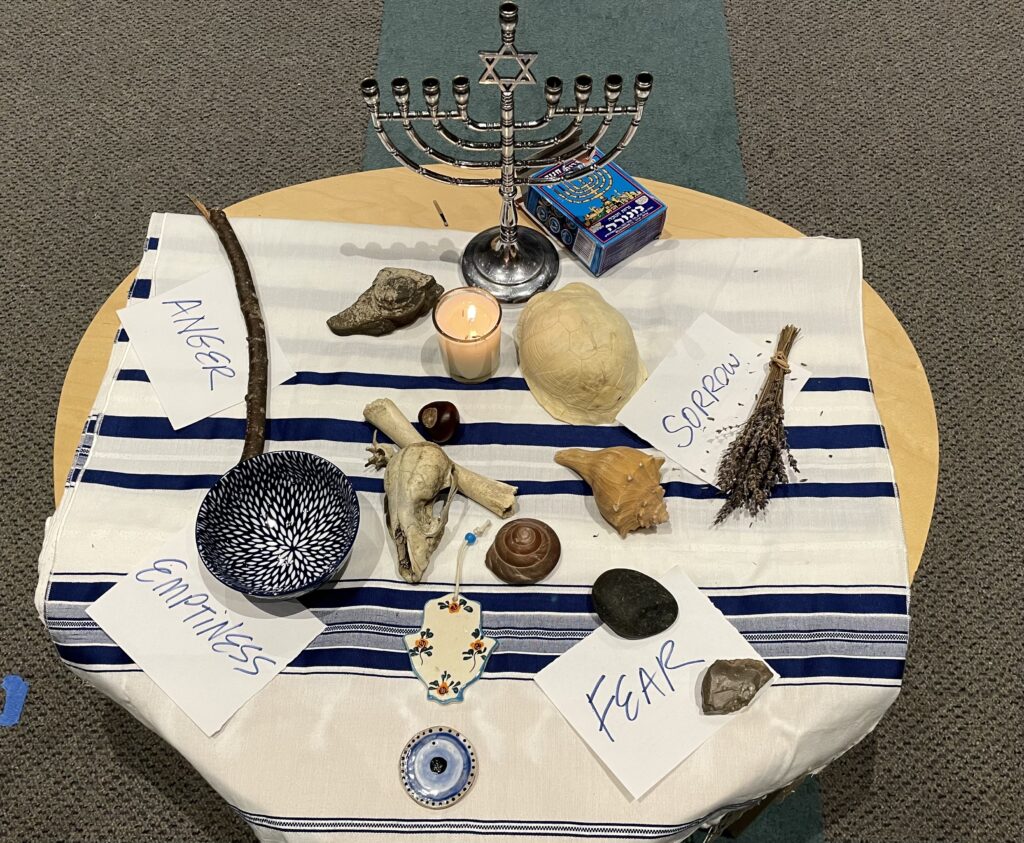
As a community, we are committed to safety and human rights for all people everywhere. A shared future, rooted in justice and dignity, is not just possible for the people of Israel and Palestine, but essential. Within our membership we have a wide range of perspectives of how that can best be achieved. Diversity of opinion is welcome.
– Statement adopted by the membership of Kehilat Sukkat Shalom February 6, 2024
This statement reflects years of our wrestling with how to approach conversations about Israel and Palestine. As a 2021 survey of Reconstructionist congregations (cited in Beinin, linked below) revealed, we were not alone. “Some 50 percent of respondents agreed that “Members of our congregation are looking for opportunities to learn about or discuss Israel or Israel/Palestine.” But 64 percent reported that their congregations “infrequently” or “never” offer any programming around Israel/Palestine. The reasons are obvious, though ethically unconvincing: 30 percent said, “We do not want to stir up controversy that may divide the congregation;” 20 percent said, “Our congregation avoids political issues.”” The events of October 7th and everything that followed made us realize we couldn’t wait any longer.
We’ve hosted various opportunities for our members to talk, from a range of perspectives on the issue. And recently adopted the above statement, cementing our commitment to ask challenging questions and have courageous conversations.
MORE RESOURCES COMING SOON TO HELP YOU
DEEPEN YOUR UNDERSTANDING AND CONVERSATIONS
ON THE RELATIONSHIP BETWEEN AND SHARED NEEDS OF
ISRAELIS AND PALESTINIANS.
* Note on nomenclature: The name for this page takes its cue from a series of talks in 2022-2023 “Reconstructionists Expanding Our Conversations on Israel-Palestine” hosted by the following Reconstructionist congregations: Congregation Dorshei Tzedek, Congregation Shaarei Shamayim, Havurah Shalom Israel/Palestine Committee, Kadima Reconstructionist Community, Kol Tzedek, Mishkan Shalom, and Or Haneshamah. The series was not formally aligned with, nor sponsored by, the Reconstructionist movement. The organizers welcomed “those who consider themselves Zionists, non-Zionists, and anti-Zionists, and those unsure about how they define themselves.” You can read more and see a list of speakers from the first year here. For an extended reflection on the project’s objectives and background from one of the originators of the series, Dr. Joel Beinin, click here.
